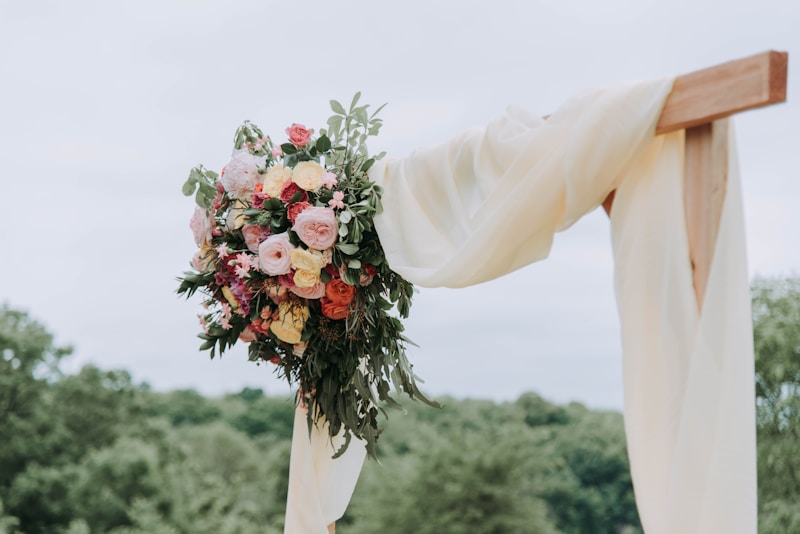Cultural Influence on Wedding Gift Choices
Understanding Cultural Influence on Wedding Gift Choices
When it comes to weddings, gifts are an integral part of the celebration. However, the choice of wedding gifts can vary significantly across different cultures. Understanding the cultural influence on wedding gift choices can help in making decisions that are both respectful and meaningful. This article will delve into various cultural traditions and explore how they shape wedding gift giving, allowing you to navigate these choices more wisely.
The Role of Culture in Gift Giving
Cultural beliefs and values have a profound impact on how gifts are perceived and given. The act of giving gifts is often intertwined with rituals, expectations, and social norms that vary from one culture to another. In many cultures, the practice of gift-giving symbolizes prosperity, goodwill, and a sense of community.
Understanding Specific Cultural Norms
Every culture has unique traditions that dictate what is considered an appropriate wedding gift. For instance, in many Western cultures, cash gifts are common. However, in other cultures, the significance of the gift can be more symbolic. Below are some cultural considerations regarding wedding gifts:
| Culture | Typical Wedding Gifts | Gift-Giving Significance |
| Western Cultures | Cash, home goods, gift cards | Encouragement of financial independence |
| Chinese Culture | Red envelopes (hongbao) with cash | Represents good luck and prosperity |
| Indian Culture | Gold jewelry, household items | Shows wealth and commitment to the new family |
| Japanese Culture | Monetary gifts in a special envelope | Symbol of respect and good fortune |
Wedding Gift Choices in Different Cultures
Now, let's take a closer look at how different cultures influence wedding gift choices.
Western Culture
In countries like the United States, Canada, and parts of Europe, wedding guests often opt for cash gifts, gift cards, or household items. The couple usually creates a wedding registry where they list items they need or desire. This practice makes it easier for guests to know what to give, ensuring that they provide a gift that the couple will appreciate. Additionally, the choice of giving cash is seen as a way to support the couple's financial footing as they embark on their new journey together.
Chinese Culture
In Chinese culture, giving gifts is a deeply entrenched tradition that comes with various customs. The giving of red envelopes, known as 'hongbao,' filled with cash is a popular practice. The red color symbolizes good fortune and happiness. The amount of money given typically reflects the relationship between the giver and the couple, along with cultural expectations. It is important to avoid giving amounts that contain the number four, as it is considered unlucky.
Indian Culture
In Indian weddings, gifts often carry significant cultural weight. Guests may present items such as gold jewelry, home appliances, or traditional textiles that symbolize prosperity and a strong familial bond. In addition, it's common for families to give large sums of cash to support the new household. The emphasis is on displaying wealth and support for the newlyweds as they integrate their lives.
Japanese Culture
Japanese culture emphasizes the concept of 'giri,' or obligation. Guests often give monetary gifts known as 'shugi-bukuro,' presented in beautifully decorated envelopes. The amount usually starts at a minimum sum, often even numbers, reflecting the hopeful continuation of life cycles. Similar to Chinese customs, odd amounts are typically avoided as they are associated with funerals.
Factors Influencing Wedding Gift Choices
Several factors influence the decisions surrounding wedding gifts, including:
- Relationship with the Couple: The closer you are to the couple, the more personal or costly your gift may be. Close friends or family often feel inclined to contribute more significant amounts or unique gifts.
- Regional Customs: Different regions may have specific practices that shape how gifts are perceived. For instance, rural areas may value handmade items compared to urban settings where commercialism prevails.
- Modern Trends: In recent years, modern couples may prefer experiences over traditional gifts, prompting a shift towards gifting outings, travel vouchers, or contributions towards their honeymoon.
- Personal Beliefs: Individual values may impact the level of materialism in gift-giving, pushing some to prefer sustainable or ethically sourced gifts.
Conclusion and Tips for Thoughtful Gift-Giving
In summary, understanding the cultural influence on wedding gift choices is crucial in selecting appropriate and appreciated gifts. Whether you are attending a wedding in the West, East, or anywhere in between, being aware of cultural nuances ensures that your gift is not only relevant but also reflects your respectful acknowledgment of the couple’s traditions and practices.
When considering a wedding gift, keep these key tips in mind:
- Research the couple's cultural background to align your gift with their traditions.
- Consider a heartfelt message or card that conveys your sentiments, as this adds a personal touch to any gift.
- Be mindful of the gift’s presentation; how you present a gift can be as important as the gift itself in many cultures.
- When in doubt, monetary gifts are often universally acceptable, but ensure you understand the customs surrounding monetary gifting in the couple’s culture.
By approaching wedding gifts with cultural sensitivity and thoughtfulness, you can foster goodwill, celebrate love, and contribute positively to the joyous event.
